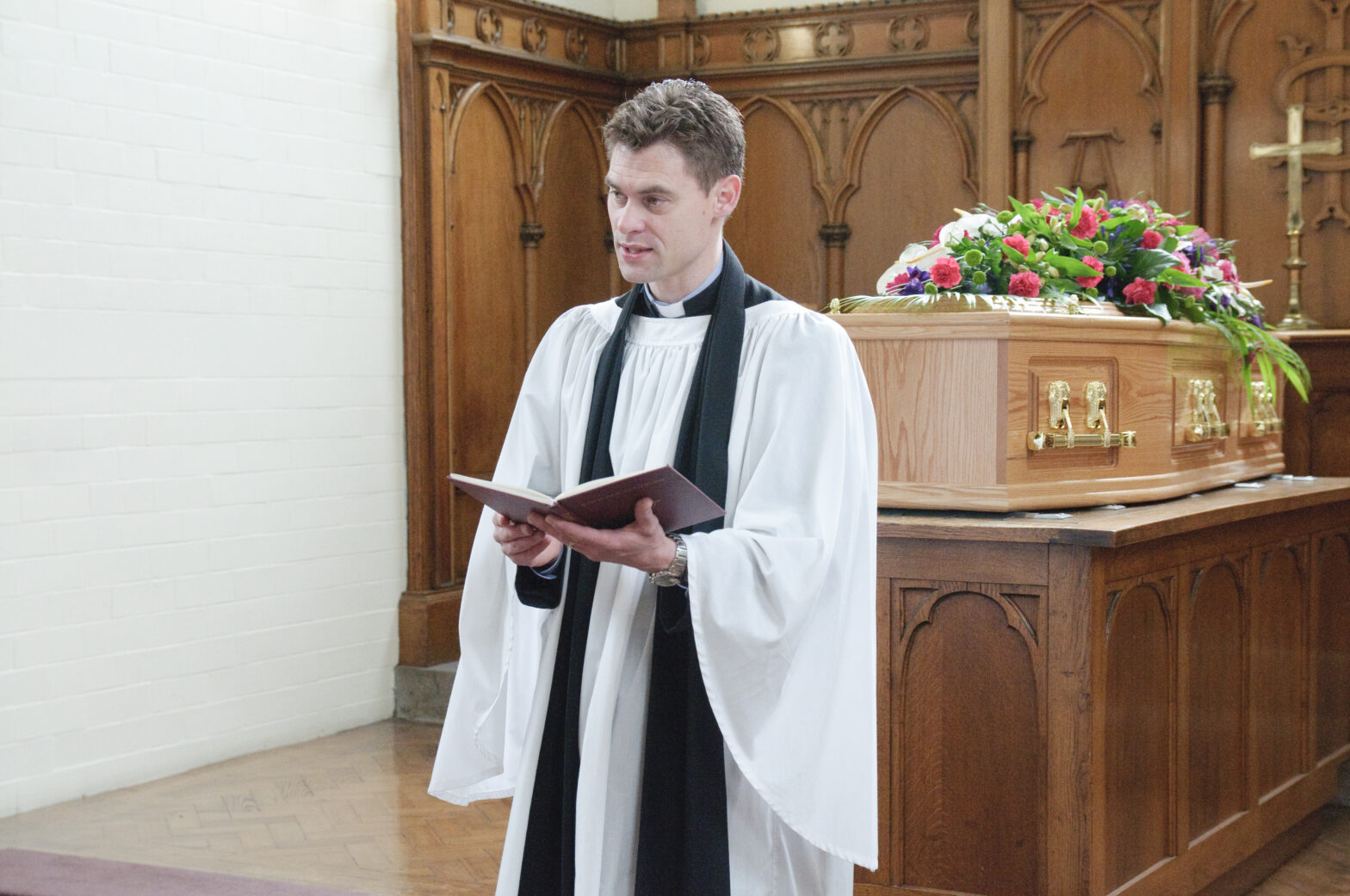Ten key opportunities for funerals ministry
Research for the Archbishops’ Council identified key ministry opportunities based on English funeral attitudes and practices
HERE ARE THE TEN OPPORTUNITIES that the research identified and which have informed how funeral ministry support and other resources available through the national Church of England have been developed:
- Own the meaning of funerals – A funeral service is perceived to be of fundamental importance to families, but the purpose and meaning of the ceremony in our culture is currently unclear. This means the nature of church involvement is also not well understood, but we can be clear about what it means, offering the Christian hope that death is not the end.
- Help people reflect on their own funeral wishes – The Church of England has unique permission to start this conversation and support people in reflecting on their wishes.
- Be easy to work with – Find ways of showing reliably high standards of customer service to help restore and build confidence in the clergy with Funeral Directors.
- Personalise funerals – The celebration of life is generally regarded as the most important part of the modern funeral service and perceived as not being reflected enough in the Church of England.
- Help the bereaved demonstrate love and care – Help the bereaved to contribute to the ceremony and support them at this difficult time.
- Move from ‘celebrant’ to spiritual counsel – Find ways to develop a less functional, more meaningful relationship with the bereaved.
- Be clear on the practicalities and publicise what you do – Many people simply don’t know what the Church of England has to offer when it comes to funerals.
- Be inclusive and accessible – Balance tradition and formality with warmth and accessibility, helping to anchor the relevance of the church into people’s everyday lives.
- Be brilliant every time – Funerals matter to people and if it is perceived as not meeting a family’s needs, it is hard to forget.
- Enable people to stay in touch – We need to follow up after funerals to offer support or friendship to those involved. It could be the difference between a family remaining strangers to the church, or becoming friends.








